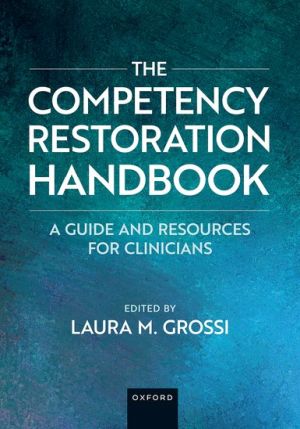
In order for defendants facing legal charges in the United States to be able to move forward with the legal process, they must be competent to proceed with their cases. Defendants are presumed to be competent to make legal decisions, until someone calls their competency into question. Once the presumption of competency is questioned, their legal case is paused and the defendant is evaluated, so that the court can determine whether they are competent to proceed. If a person is not adequately knowledgeable about how the court system works, or too psychiatrically unstable to proceed with their case, their case gets put on pause and the defendant is ordered for "competency restoration."
The Competency Restoration Handbook is a collection of foundational materials for competency restoration providers who work with adult pretrial defendants in the United States. The book begins with a description of the legal context related to adjudicative competence and an overview of foundational competency restoration practices. Following these foundational resources are chapters explaining how various clinical interventions can be adapted to help restore individuals to competency, and an assortment of practical tools (study guides, vocabulary-based games, and other hands-on activities) for use with defendants undergoing competency restoration.
Covering empirically informed, theoretical, and creative approaches that can be individualized for each specific defendant, the book encourages and facilitates best practices in competency restoration. Readers are encouraged to adopt these interventions to address defendant-specific barriers to competency. The authors also encourage competency restoration providers to consider adapting other treatment modalities (i.e., particularly those which are empirically supported or newly developed) to facilitate competency restoration.